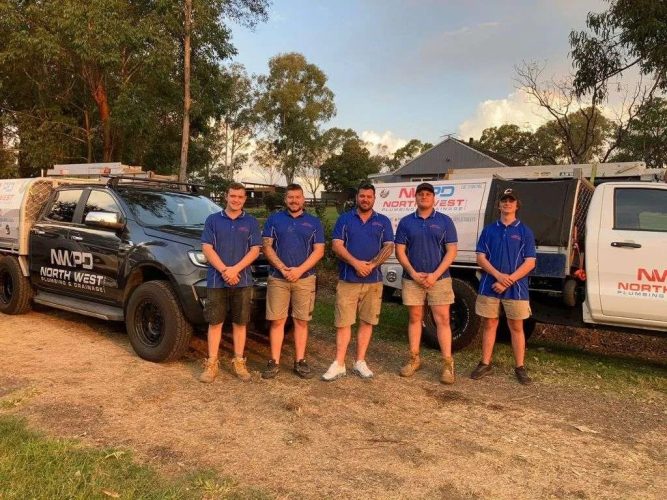Gas Hot Water Not Getting Hot Enough? Discover 5 Powerful Solutions to Fix the Frustration!
If your gas hot water isn’t heating up like it should, you’re not alone. Many people face this problem at some point. But don’t worry! There are several reasons why this happens, and most of them can be fixed easily.
Key takeaways
- Broken dip tube can cause lukewarm water.
- Sediment buildup in the tank can trap heat.
- Faulty thermostat may not set the right temperature.
- Gas valve issues stop the heater from getting fuel.
- Regular maintenance can prevent problems.
- Learn more about how to maintain your plumbing systems effectively.
Understanding the Issue
Hot water is one of those things you take for granted. You expect it when you turn on the tap. So, when the water comes out lukewarm, it can be frustrating. The good news is, there are common reasons for this. Let’s break it down.
Common reasons for lukewarm water
Broken dip tube
A dip tube is a pipe that sends cold water to the bottom of the tank. If this tube breaks, cold water mixes with hot water. This can make your hot water not hot enough. You may need to check the dip tube if your water isn’t warming up as expected.
Sediment buildup
Over time, minerals from the water can settle at the bottom of the tank. This is called sediment buildup. It acts like a blanket, trapping heat. So, your water heater has to work harder. Flushing the tank can help remove this sediment. This keeps your heater working well.
| Problem | Description | Solution |
|---|---|---|
| Broken dip tube | Cold water mixes with hot water | Inspect and replace dip tube |
| Sediment buildup | Heat is trapped by mineral deposits | Flush the tank regularly |
| Faulty thermostat | Incorrect temperature settings | Check settings or replace |
| Gas valve issues | Disrupted gas supply to heater | Inspect and repair gas valve |
Faulty thermostat
The thermostat controls the temperature of the water. If it’s broken or set too low, water won’t be hot enough. You should check the settings and replace the thermostat if it’s faulty.
Broken gas valve
The gas valve allows gas to flow to the heater. If it’s faulty, your heater may not produce enough heat. A plumber can check the valve and replace it if necessary.
Other possible causes
Unmanageable hot water demand
Sometimes, a busy household can cause hot water issues. If many taps are running at once, your heater may not supply enough hot water. Make sure to space out hot water usage during peak times in your home.
Leaking hot water tank
A leaking tank can cause your water heater to lose heat. If you notice any water around your heater, you may have a leak. It’s essential to get it fixed soon to avoid further damage.
Worn-out water heater
If your heater is old, it might need replacing. Most gas water heaters last about 8 to 12 years. If your unit is older than that, consider getting a new one.
How to troubleshoot gas hot water issues
- Check the thermostat: Make sure it’s set to the right temperature, usually around 60°C.
- Inspect the dip tube: Look for any cracks or breakage.
- Check for leaks: Look for water around the tank.
- Flush the tank: This helps remove sediment buildup.
- Look at the gas valve: Make sure it’s working correctly.
Additional troubleshooting tips: – Ensure all faucets and showers are turned off during the heating cycle. – Check if the pilot light is lit; if not, follow the manufacturer’s instructions to relight it. – Listen for unusual noises, which may indicate internal issues.
When to call a plumber
If you can’t figure out the problem, it may be time to call a plumber. They have the tools and experience to find issues quickly. Here are a few signs it’s time to call:
- You see water pooling around the heater.
- Your gas bill has suddenly increased.
- The heater is making strange noises.
- You have tried everything, but nothing works.
Regular maintenance tips
Keeping your water heater in good shape can prevent many issues. Here are some easy tips:
- Flush the tank once a year.
- Check the anode rod: This protects the tank from rust.
- Inspect gas lines for leaks.
- Keep the area around the heater clean and free of debris.
| Maintenance Task | Frequency | Purpose |
|---|---|---|
| Flush the tank | Annually | Removes sediment buildup |
| Inspect anode rod | Every 2 years | Prevents rust and corrosion |
| Check gas connections | Annually | Ensures safety and proper function |
Conclusion
A gas hot water system can sometimes let you down. But by understanding the common issues and how to fix them, you can take control. Regular maintenance is key to keeping your hot water running smoothly. If you ever feel stuck, don’t hesitate to call a plumber.
Understanding your plumbing can save you time and money. Look after your gas hot water system, and you’ll enjoy hot showers for years to come. Find out more about emergency plumbing services.

Jai Simons
Jai is a fully licenced plumber and the owner of North West Plumbing and Drainage. If you need to fix a water leak or unblock a drain, give Jai a call.
Related
About Us

North West Plumbing delivers old-fashioned customer service to our community. We treat our clients the way we would want to be treated – with respect and honesty. All of our services are performed with your best interests in mind. There is no job too small or too tough for us to handle.

